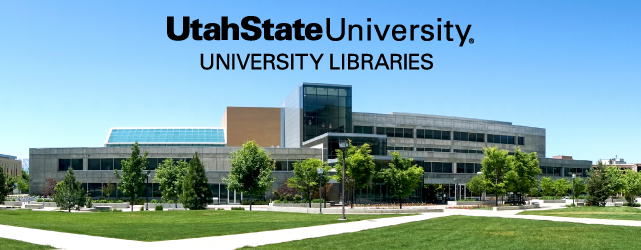Document Type
Article
Journal/Book Title/Conference
Reference & User Services Quarterly
Volume
37
Issue
2
Publication Date
Winter 1997
First Page
161
Last Page
169
Abstract
Cooperative Extension personnel are responsible for disseminating information of university-based research to the people of their state. At Utah State University, there were no library services in place to assist this population in meeting the demands for information. Extension personnel were surveyed to identify useful library services, and the results were used to develop and market library services. The land-grant university system was initiated by the Morrill Acts of 1862/1890 and expanded by the Smith-Lever Act of 1914. As a result of these acts of Congress, land-grant universities and colleges, including Utah State University (USU), have as their mission three goals: research, education, and service. The Smith-Lever Act also established the Cooperative Extension System to exist in conjunction with land-grant universities. The purpose of this national system, which consists of three partners--the United States Department of Agriculture, state land-grant institutions, and local agencies at the city and county levels--is to bring practical and useful applications of university research to the people throughout each state.(FN1) This is accomplished at the local level through the work of Cooperative Extension agents stationed in nearly every county within the state. Utah State University is somewhat unique among land-grant universities in its organization of Utah's Cooperative Extension Service. In 1970, the university combined its traditional Cooperative Extension program with the academic programs and services of its eight colleges and departments, preparing university extension to provide a broader range of informational services beyond those in agriculture, natural resources, and family life. A 1995 survey of 1,678 Utah residents and 70 Utah legislators conducted by Extension Services indicated the need for extension's primary responsibility to shift. Traditionally, extension's role was the dissemination of information in areas such as agriculture and family life but should now include the dissemination of information in new areas such as urban growth and development, education, taxes, gangs, and crime as well. As communities experience changing needs for information, extension agents are required to serve different audiences and provide services in new ways. Providing the public with access to information is a function shared by both Cooperative Extension Service and the land-grant-based academic library. The library's role, despite the changing nature of information storage, retrieval, and delivery, remains to collect, preserve, and provide access to information on a wide range of subjects. Similarly, the role of Extension Service, which has been experiencing changes comparable to libraries, calls for it to provide access to information through making the practical application of university-based research and knowledge accessible to the citizens of every state. Extension is exploring new channels of delivery as Rasmussen discusses in Taking the University to the People: Seventy-five Years of Cooperative Extension:
Extension should adopt program delivery systems that will enable it to act as the resource base for disseminating applied research, reaching a wide range of new and present audiences, and extending its educational programs beyond traditional spheres. Extension must act decisively to maintain its role as the arm of the land-grant university providing research-based knowledge and educational programs having a positive impact on issues affecting agriculture, communities, families, and youth. It must move beyond service to the traditional agricultural producers, homemakers clubs, and 4-H clubs to become a recognized program developer and valued educational resource for organizations, agencies, and localities as well as for its traditional clientele.(FN2)
Meeting these demands for new types of information and new systems of delivery is a challenge currently facing extension personnel and is an opportunity for the university land-grant library to identify and develop types of services and programs that would benefit extension personnel in meeting their challenges.
Recommended Citation
Rozum, B., & Brewer, K. (1997). Identifying, developing, and marketing library services to cooperative extension personnel. Reference & User Services Quarterly, 37(2), 161-9.



Comments
Originally published by the American Library Association in Reference in Reference & User Services Quarterly